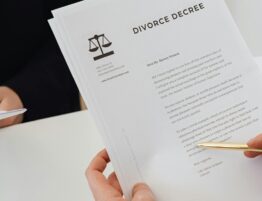The 4th of July is a time for celebration, and fireworks are a traditional part of the festivities.
However, it is important to understand and adhere to Arizona’s fireworks laws to avoid legal trouble.
Arizona has stringent regulations regarding the sale, possession, and use of fireworks, and violations can result in penalties.
At The Law Office of Daniel Hutto, we understand that fireworks-related charges can be complex and stressful. Our experienced legal team specializes in criminal defense and is well-versed in Arizona’s fireworks laws.
We can provide legal guidance and representation if you face charges related to possessing or using illegal fireworks.
Here’s what this article will cover:
- Arizona’s Fireworks Regulations: A.R.S. § 36-1606
- Permissible Consumer Fireworks
- Illegal Types of Consumer Fireworks in Arizona
- Penalties for Fireworks Violations
- Defending Against Fireworks-Related Charges
How an Arizona Criminal Defense Attorney Can Help
Our Phoenix Criminal Defense Attorneys are Here to Help!
Arizona’s Fireworks Regulations: A.R.S. § 36-1606
Arizona’s strict fireworks laws reflect the state’s concern for public safety.
A.R.S. § 36-1606 outlines the regulation, sale, and use of permissible consumer fireworks, with further restrictions imposed by cities and municipalities.
Fireworks in Counties with Over 500,000 People
In counties with populations exceeding 500,000, the sale of permissible consumer fireworks is regulated in the following ways:
- Sale Periods:
- April 25th to May 6th
- May 20th to July 6th
- December 10th to January 3rd
- Two days before Diwali through the third day of Diwali
- Use Periods:
- May 4th to May 6th
- June 24th to July 6th
- December 26th to January 4th
- Second and third days of Diwali
Fireworks sales to individuals under sixteen are prohibited.
Additionally, counties can restrict fireworks use near preservation lands and other protected areas even during permissible periods.
Usage is also restricted between 11:00 pm and 8:00 am, except for New Year’s Day and the 5th of July, when the cut-off extends to 1:00 am.
Fireworks in Counties with Under 500,000 People
In less populated counties, the sale and use of fireworks are similarly regulated, with added restrictions during high-fire risk periods:
- Sale Periods:
- May 20th to July 6th
- December 10th to January 3rd
- Use Periods:
- June 24th to July 6th
- December 26th to January 4th
Counties may prohibit fireworks near protected lands and restrict use between 11:00 pm and 8:00 am, except on New Year’s Eve and the 4th of July.
Permissible Consumer Fireworks
In Arizona, certain types of fireworks are classified as permissible consumer fireworks.
These are fireworks that individuals can legally purchase and use, subject to local regulations.
Here are some examples of permissible consumer fireworks:
- Ground or Handheld Sparklers: These small, sparkling devices are popular for their bright, colorful displays and ease of use.
- Cylindrical and Cone Fountains: These fireworks produce a shower of sparks that can vary in height and color, providing a safe and visually appealing option.
- Illuminating Torches: Known for their steady flames, illuminating torches can add a festive glow to any celebration.
- Wheels and Ground Spinners: These devices spin on the ground, creating dynamic displays of light and motion.
- Flitter Sparklers and Toy Smoke Devices: These include sparklers that emit flittering sparks and devices that produce colorful smoke.
- Wire Sparklers, Snappers, Pop-Its, Party Poppers, and Glow Worms: These smaller, often handheld items are popular for their simplicity and safety, making them suitable for all ages.
Local fire departments regulate these permissible fireworks to ensure public safety.
It is essential to use only permissible fireworks, as using non-permissible fireworks can result in severe legal consequences, including fines and criminal charges.
Illegal Types of Consumer Fireworks in Arizona
In Arizona, certain fireworks are strictly prohibited to ensure public safety and prevent accidents.
These illegal consumer fireworks are defined by their potential to cause significant harm or damage.
Here are some examples of fireworks that are illegal for consumer use in Arizona:
- Aerial fireworks designed to launch into the air and explode, creating large displays. Examples include rockets, mortars, and Roman candles.
- Firecrackers: Known for their loud bangs and explosive nature, firecrackers are banned due to the high risk of injury and property damage.
- Skyrockets and Bottle Rockets: These are similar to aerial fireworks but often smaller and more unpredictable. They are prohibited because they can easily ignite fires or cause injuries.
- Reloadable Shells: These fireworks involve a base that can be reloaded with explosive shells. Their power and reusability make them particularly dangerous.
- Missile-Type Rockets: These fireworks are designed to fly erratically and can pose severe risks to people and property.
- Chasers: These fireworks rush across the ground and can quickly get out of control, posing significant safety hazards.
- Single-Tube Devices with Reports: These fireworks explode with a loud report (bang) and are banned for their potential to cause disturbances and injuries.
Possession, sale, or use of illegal fireworks can lead to severe legal consequences, including fines and criminal charges.
Penalties for Fireworks Violations
Violations of fireworks laws can result in severe penalties, varying by municipality:
- Phoenix: Violations are treated as class 1 misdemeanors with fines up to $1,000.
- Mesa: Offenders face civil penalties, fines up to $500, or class 1 misdemeanors, including up to six months of incarceration.
- Scottsdale: Violations may result in civil offenses or class 3 misdemeanors, with fines starting at $275.
Defending Against Fireworks-Related Charges
Finding yourself charged with the possession or use of illegal fireworks can be a daunting and stressful experience, especially during what should be a time of celebration.
Making mistakes or being unaware of specific regulations is easy, leading to unintended legal consequences.
If you or a loved one has been caught with illegal or impermissible fireworks, it’s important to know that you are not alone and that help is available.
The legal system can be complex, but with the right defense strategies and experienced legal representation, you can navigate these challenges and work towards a favorable outcome.
Here are some effective defense strategies to consider:
Challenging the Classification
One effective defense strategy is to challenge the classification of the fireworks. If it can be demonstrated that the fireworks in question are permissible under Arizona law, charges may be dismissed.
Lack of Knowledge
Proving that the defendant was unaware of the fireworks’ illegal nature can be a viable defense. This is particularly relevant if the seller misrepresented the fireworks.
Constitutional Defenses
If fireworks were seized without a proper warrant or probable cause, a Fourth Amendment defense could be employed to suppress the evidence.
Mitigating Circumstances
Highlighting mitigating circumstances, such as the defendant’s clean record or the safe use of fireworks, can lead to reduced penalties.
Negotiating Plea Deals
Negotiating a plea deal might be the best strategy when the evidence is strong. This can involve reducing charges or penalties in exchange for a guilty plea to a lesser offense.
Contact The Law Office of Daniel Hutto Today

Arizona’s fireworks laws are comprehensive and strict, especially during the 4th of July celebrations.
Understanding these laws and knowing how to defend against potential charges is crucial.
If you face fireworks-related charges, seeking experienced legal representation is essential.
The Law Office of Daniel Hutto specializes in criminal defense and can help you navigate Arizona’s legal system effectively.
Contact us today at 602 536-7878 to schedule your free consultation.













